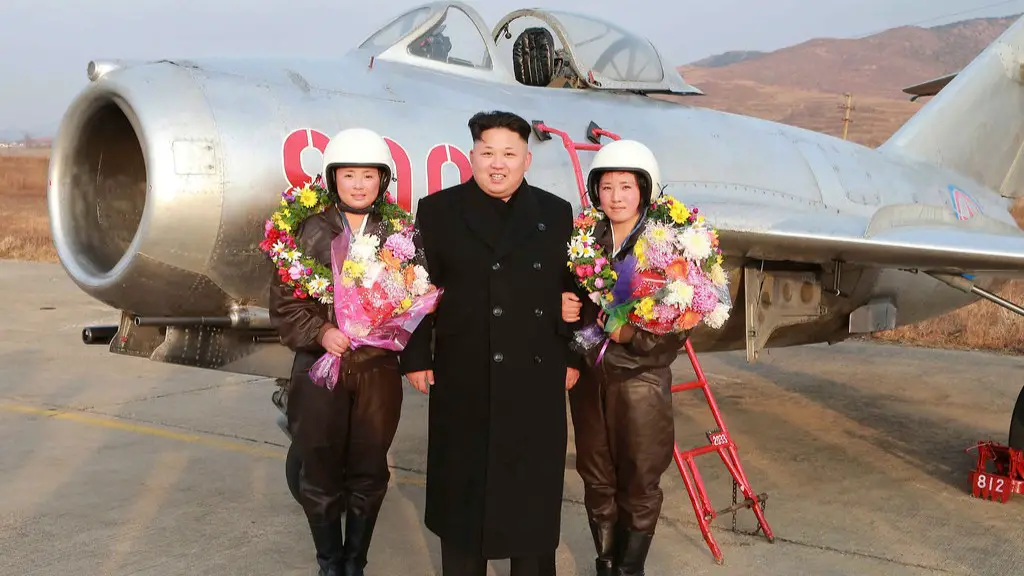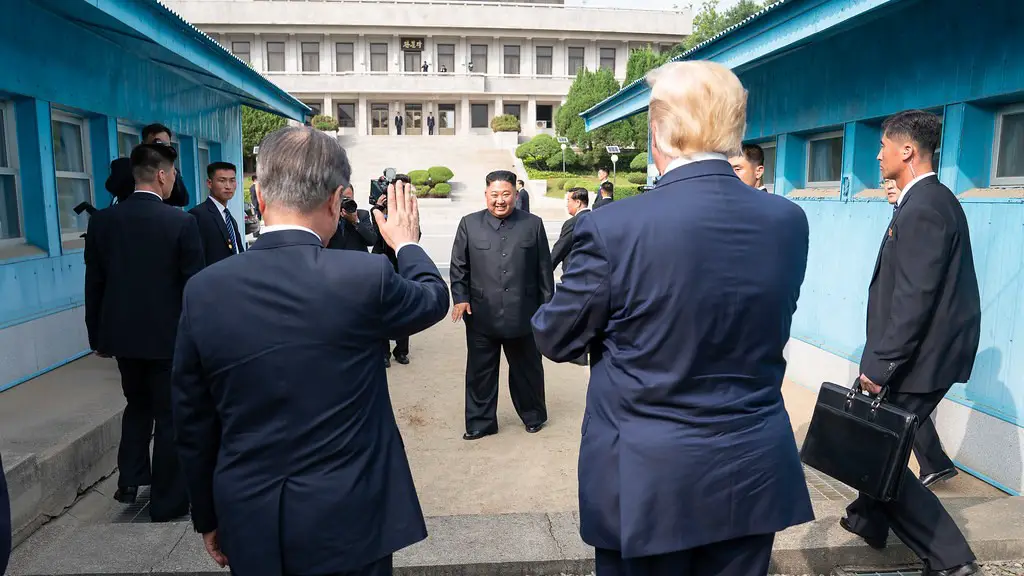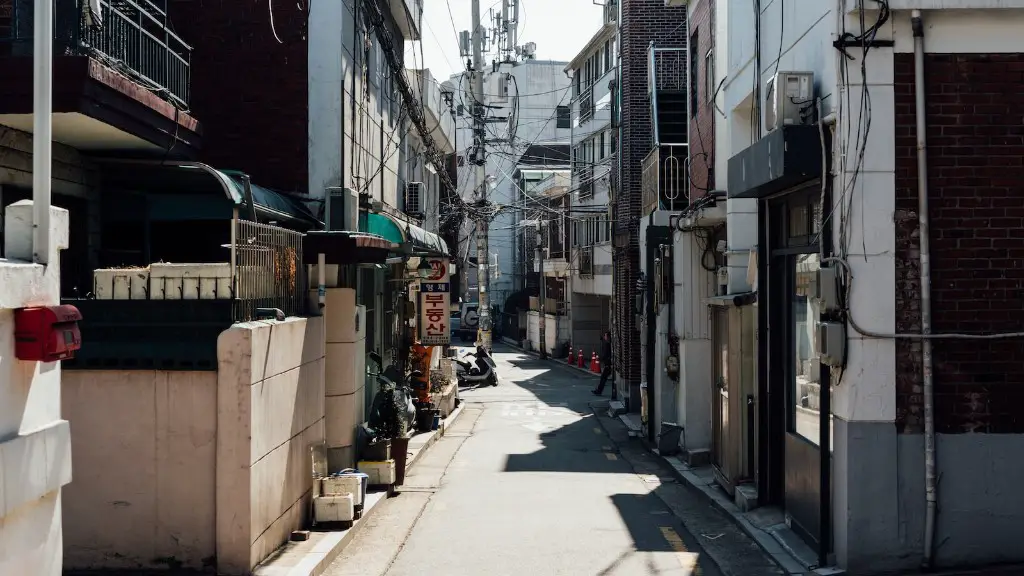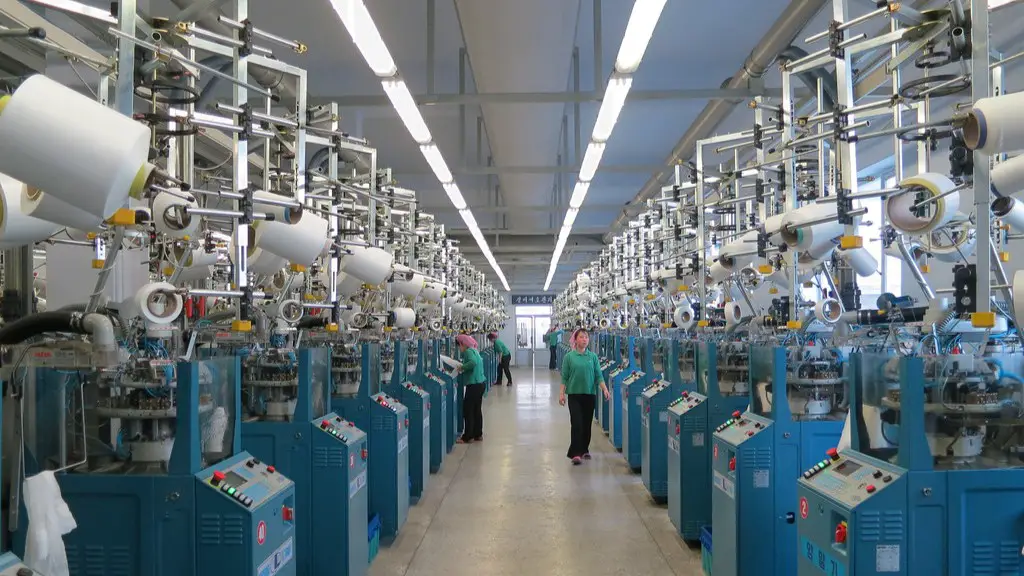What Percentage Of North Korea Is In Poverty
The poverty rate in North Korea is one of the highest in the world. According to estimates from the United Nations, up to 70% of the population of the Democratic People’s Republic of Korea (DPRK) is living in poverty. This means that more than 17 million men, women and children struggle to feed themselves and their families on a daily basis. North Koreans are suffering from the consequences of an entrenched system of government that has consistently failed to provide basic human rights.
The extreme poverty in North Korea can be attributed to the country’s closed-off and centrally planned economy, as well as its authoritarian political system which tightly controls citizens’ access to information, healthcare, education and resources. Political instability and government suppression of civil liberties also contribute to North Korea’s poverty rate. The International Monetary Fund (IMF) estimates that North Korea’s annual GDP per capita is approximately US$1750. To compare, this is less than 5% of the average global GDP per capita, which stands at around US$12,000 per person per year.
The poverty situation in North Korea has been further exacerbated by the decades-long economic sanctions imposed by the United Nations. These sanctions are intended to discourage the DPRK from its nuclear weapon program. However, the majority of North Koreans have felt the brunt of these sanctions and have seen a reduction in their access to food, fuel and other essential goods. An estimated 11 million people are also food insecure and in need of external assistance.
Experts warn that the extreme poverty in North Korea could have long-term social and economic costs. Aside from the humanitarian crisis, there is the growing risk of mass emigration out of North Korea and onto the border between China and the DPRK. This has created an underground market of illegal trafficking and forced migration of vulnerable North Koreans for labor.
In order to reduce poverty in North Korea, the international community must work together and commit to providing genuine assistance with needs-based aid and access to trade. This will help to empower individuals and communities to improve their lives in the long-term. International organizations such as the United Nations and the World Food Programme have established programs to help provide aid and support to North Koreans, but more efforts are needed to ensure sustainable improvements in the country.
Access to Resources
Access to basic resources such as food, water, and energy are integral components to reducing poverty rates in North Korea. This is especially true in rural regions, where resources are limited. Furthermore, the state heavily controls the distribution and access to resources, further exacerbating the poverty situation, especially for those in rural areas. For example, the most recent 2017 report from the World Food Programme has shown that the limited and inadequate resources in North Korea are appropriated disproportionately in favor of certain cities, creating an unequal access to basic goods.
Efforts to increase food security and access to resources in North Korea must be met with international support. For example, multilateral organizations such as the World Food Programme, the United Nations Human Rights Council and the International Committee of the Red Cross are all working to provide humanitarian aid to the region.
Moreover, increased access to resources through free and fair trade can also lead to increased economic investment and improved livelihoods for North Koreans. This can be facilitated through better infrastructure, improved transportation networks, and improved storage and delivery systems of goods.
Furthermore, international organizations have helped to set up modernization programs, such as farm-to-market initiatives, to promote sustainable food production in North Korea. By implementing these initiatives, it is possible to increase access to food and sustain an independent economy free from international control.
Economic Reforms
Another way of reducing poverty levels in North Korea is to enact economic reforms that increase economic activity and reduce dependence on external aid. This could include policies such as encouraging increased investment in the region, increasing access to capital and technology, and providing incentives for private-sector development.
One example of a reform measure that could be implemented is the development of a trade corridor connecting North Korea and its Asian neighbors. This type of development would not only create new economic opportunities, but would also help to facilitate the exchange of goods and services across borders. Additionally, by creating a new platform for cooperation, the international community could pressure North Korea to become open and accountable to its citizens, which in turn could enable citizens to better access resources and work opportunities.
In addition to economic reforms, it is important for North Korea to significantly invest in education and health care. Improving access to quality education and healthcare can reduce inequality levels and provide opportunities for upward economic mobility for North Koreans. The government would also need to ensure that resources are targeted towards vulnerable and impoverished communities in order to help them overcome the challenges of poverty.
Finally, North Korea could work with the international community to identify and develop additional sources of foreign investment. This would open the country up to new opportunities and could potentially attract a larger influx of tourists and international investors.
Cultural and Social Barriers
The issue of poverty in North Korea is further complicated by social and cultural barriers. North Korea’s authoritarian government slows progress when it comes to basic human rights, such as freedom of speech, which prevents citizens from being able to speak out against inequality and poverty. Furthermore, women are disproportionately affected by poverty in North Korea, as they often carry out unpaid labor and domestic duties and have limited access to resources and political participation. Moreover, disabled individuals and ethnic minorities are more likely to suffer from extreme economic deprivation due to discrimination and systemic exclusion from the economic and social mainstream.
To break down the cultural, social and political barriers to poverty in North Korea, the government must commit to implementing policies that empower citizens to challenge the status quo and advocate for basic human rights. This requires the government to be open to dialogue and allow for greater transparency and freedom of expression. Additionally, the government must ensure that all citizens, regardless of gender, ethnicity or disability, are given equal access to education, health care and other social services.
Finally, North Korea must partner with international organizations to provide increased access to resources and support to vulnerable communities. This can help to reduce poverty and create a more equitable and prosperous future for all North Koreans.
International Relations
Finally, it is important to explore how international relations can play a role in poverty reduction in North Korea. Despite the years-long sanctions the country has faced, recent indications of diplomatic dialogue suggest that there is the potential for improved international relations. This could open up new economic opportunities for North Korea and lead to increased access to foreign goods and services.
At the same time, international organizations such as the United Nations, the United States, and China have a responsibility to work together to ensure that sanctions on North Korea are removed in a way that is beneficial and not detrimental to the citizens of the country.
Ultimately, international cooperation and dialogue is key to reducing poverty in North Korea. Strengthening international ties with North Korea, supporting the development of sustainable projects and providing aid can help to reduce poverty, create economic opportunities and encourage citizens to engage in social dialogue and political reform.
Technology and Innovation
Lastly, it is also important to explore how technology and innovation can be used as a tool to reduce poverty in North Korea. Increasing access to modern technology, such as the internet and mobile devices, can create new economic opportunities for citizens.
For example, the introduction of machine learning and artificial intelligence can open up new employment opportunities, as well as facilitate transportation, energy and resource allocation. Additionally, access to the internet can provide North Koreans with information on global markets, international news and other resources, allowing citizens to better access information, resources, and create new business opportunities.
At the same time, it is important to ensure that access to technology is not limited to the country’s elite, but is available to citizens across the country. This can be achieved by targeting resources and support to vulnerable communities and providing access to the internet and mobile devices to those who do not have access to them.
Finally, innovation platforms such as hackathons, coding competitions and maker spaces should be established to help empower North Koreans to develop and share their skills and knowledge. This will enable citizens to create new technology solutions and create economic opportunities for themselves and their communities.





